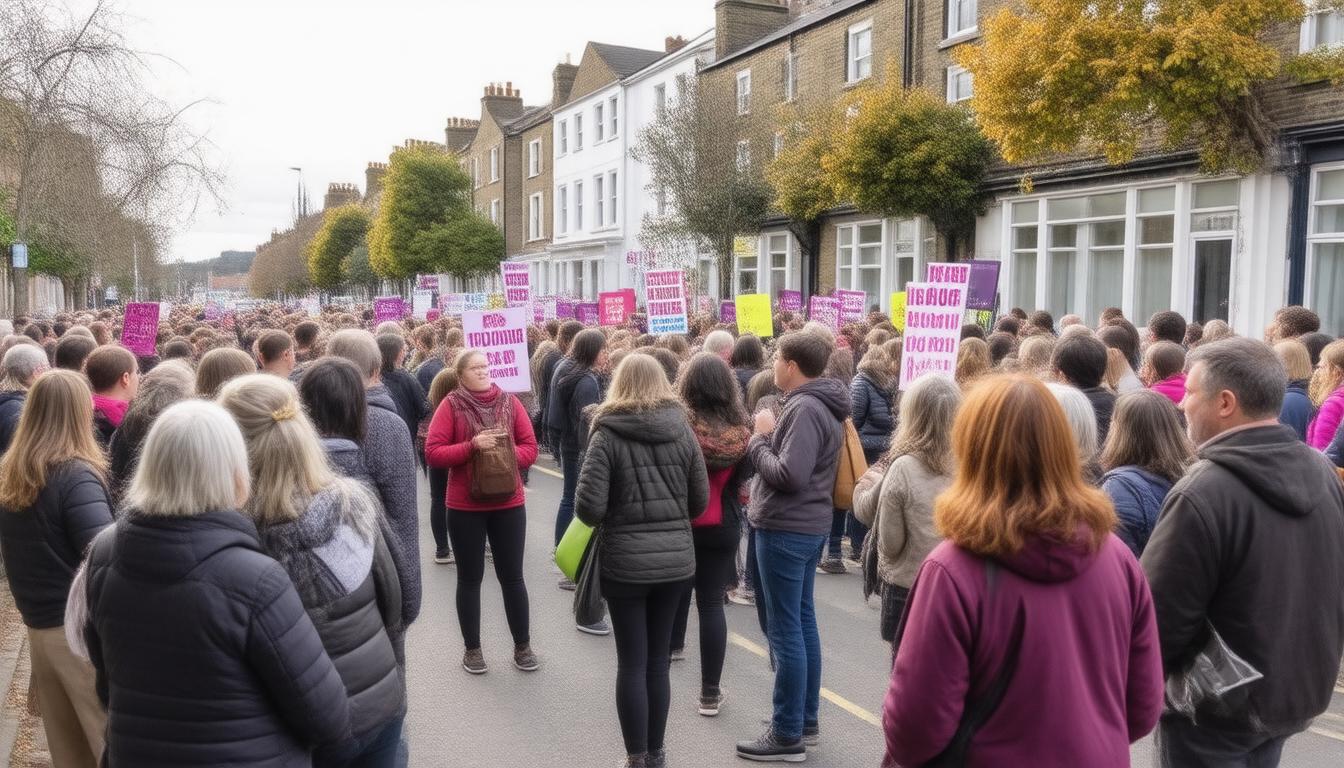In Worcester, residents of St John’s are voicing strong opposition to a proposed extension of a house in multiple occupation (HMO) located on Woodstock Road, which intends to increase its capacity from six to eight bedrooms. This proposal has ignited significant discontent among locals who claim that the ongoing growth of student housing has detrimental effects on their neighbourhood, particularly concerning parking availability and overall community cohesiveness. The new plans include a modest enhancement in parking provisions, moving from two to three spaces, yet many residents argue that this change is insufficient given the expected increase in occupants. With a notable rise in HMOs in recent years, residents feel the area is already ‘full to bursting point,’ as articulated by one local citizen. Although the application does not specify the intended occupants, its proximity to the university has led to widespread assumptions that the additional rooms will be filled with students. The outpouring of objections from the community underscores a growing frustration, with claims that the proposed expansion would further strain local amenities and significantly alter the character of the area. Moreover, this situation has been complicated by mixed responses from local council members, some of whom suggest that the backlash reflects deeper societal biases. This ongoing saga raises important questions about the balance between accommodating student housing needs and preserving the integrity of local neighbourhoods.
Key Takeaways
- Residents are concerned about the negative impact of increasing HMOs on community life in St John’s.
- The proposed increase in parking spaces is deemed insufficient to accommodate the additional occupants.
- Local council members have varying views on the protests, suggesting underlying class biases may exist.
Impact of HMO Expansion on Community Life
In a current debate over community sustainability, residents in St John’s, Worcester, are vocally opposing a plan to expand a house of multiple occupation (HMO) on Woodstock Road from six to eight bedrooms. Locals argue that the recent surge in student housing is straining their community. The proposed development includes a modest increase in parking spaces from two to three, but residents are concerned this will be inadequate for the anticipated surge of occupants (Worcester News, 2024). Some locals lament that Woodstock Road is already ‘full to bursting point’ with HMOs, pointing out that the increase in higher-density housing arrangements can lead to a transformation in community dynamics (Worcester News, 2024). While the application does not specify that the new rooms are intended for students, the proximity to the university strongly suggests that this will be the case, eliciting substantial objections from community members. One concerned resident stated that the proposal would ‘massively impact’ their neighborhood, insisting it should be rejected unless adequate parking provisions are made. This situation has sparked a debate amongst local council members, where some perceive the opposition as influenced by social class biases rather than genuine community concern (Worcester News, 2024). The ongoing discourse highlights the tensions between new housing developments and existing resident dynamics in growing urban areas.
Parking Challenges and Resident Concerns
In St John’s, Worcester, the increasing number of houses of multiple occupation (HMOs) has become a contentious issue, as residents voice their concerns regarding a proposed expansion on Woodstock Road. With local housing strategies increasingly favouring student accommodations, there is a palpable fear among long-term residents that their living environment is changing fundamentally. The proposed increase to eight bedrooms, despite only adding one parking space, has left many feeling that the existing infrastructure cannot sustain another influx of residents. Numerous community members have expressed discontent, with one individual noting that the roads are already congested with parked vehicles, asserting that another HMO would exacerbate this situation (Worcester News, 2024). The local council faces a dilemma, balancing the need for housing against the pressures on existing communities and acknowledging that the changes may disproportionately affect certain demographic groups. As public consultations continue, tensions remain high, reflecting broader national conversations about housing affordability and community identity in urban settings (Worcester News, 2024). Understanding the implications of such developments on local living conditions is crucial as they unfold, highlighting the need for thoughtful urban planning.





